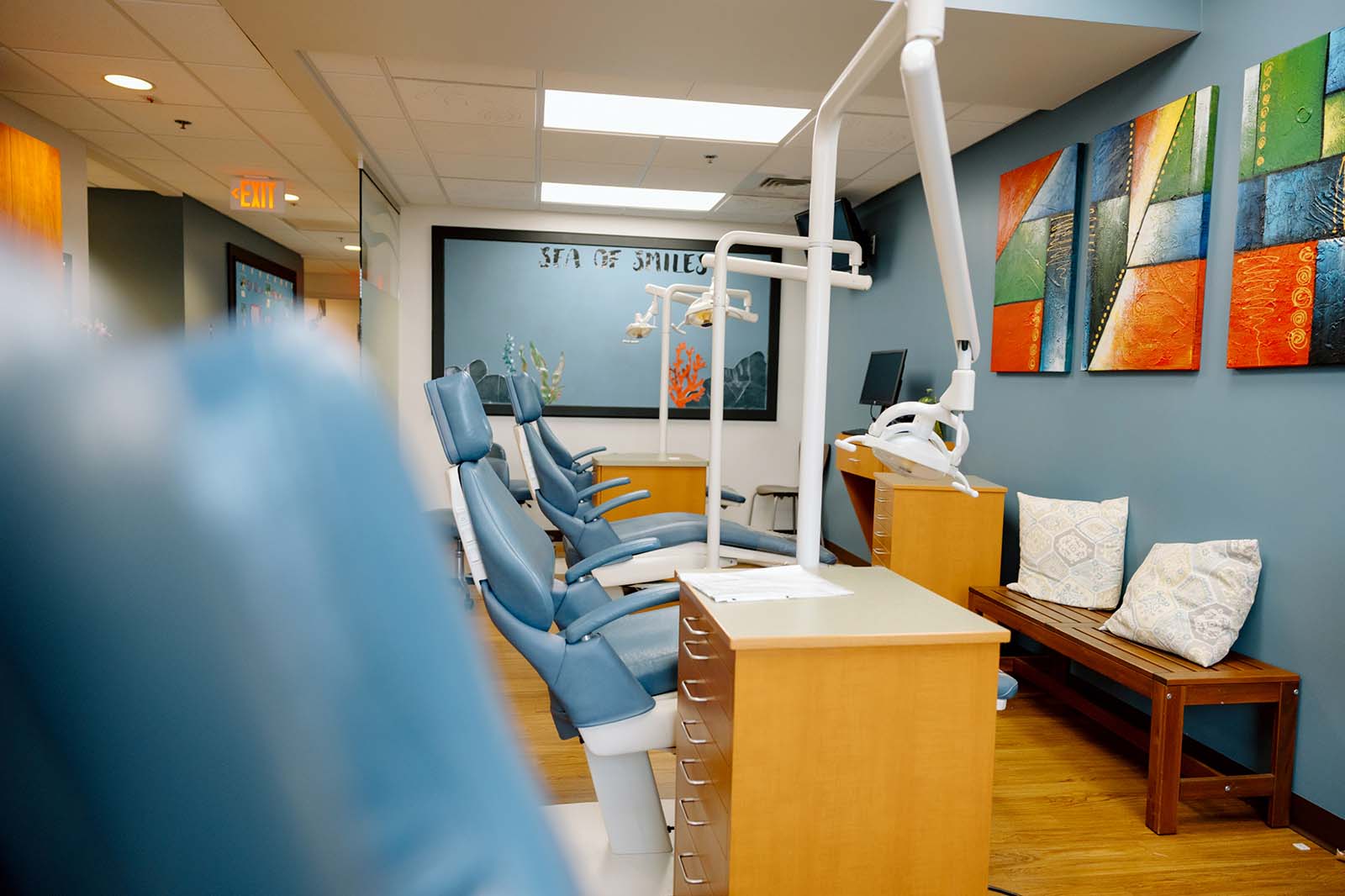Your Child’s First Visit
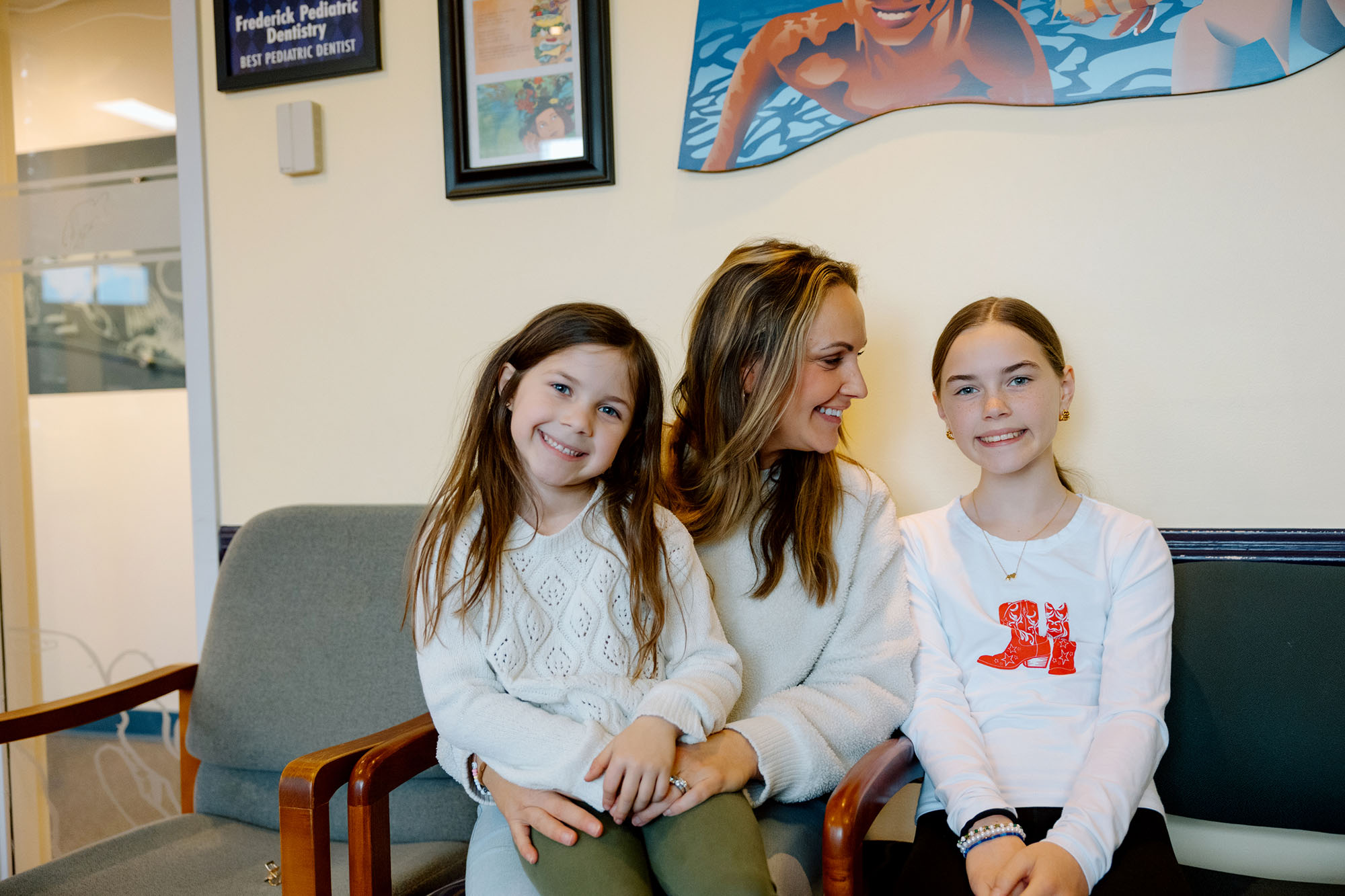


When Should My
Baby Visit?
The American Academies of Pediatrics and Pediatric Dentistry recommends that all babies visit a dentist by the time they are 12 months old. The good news is that we offer the first dental exam for any child under 18 months at no cost.
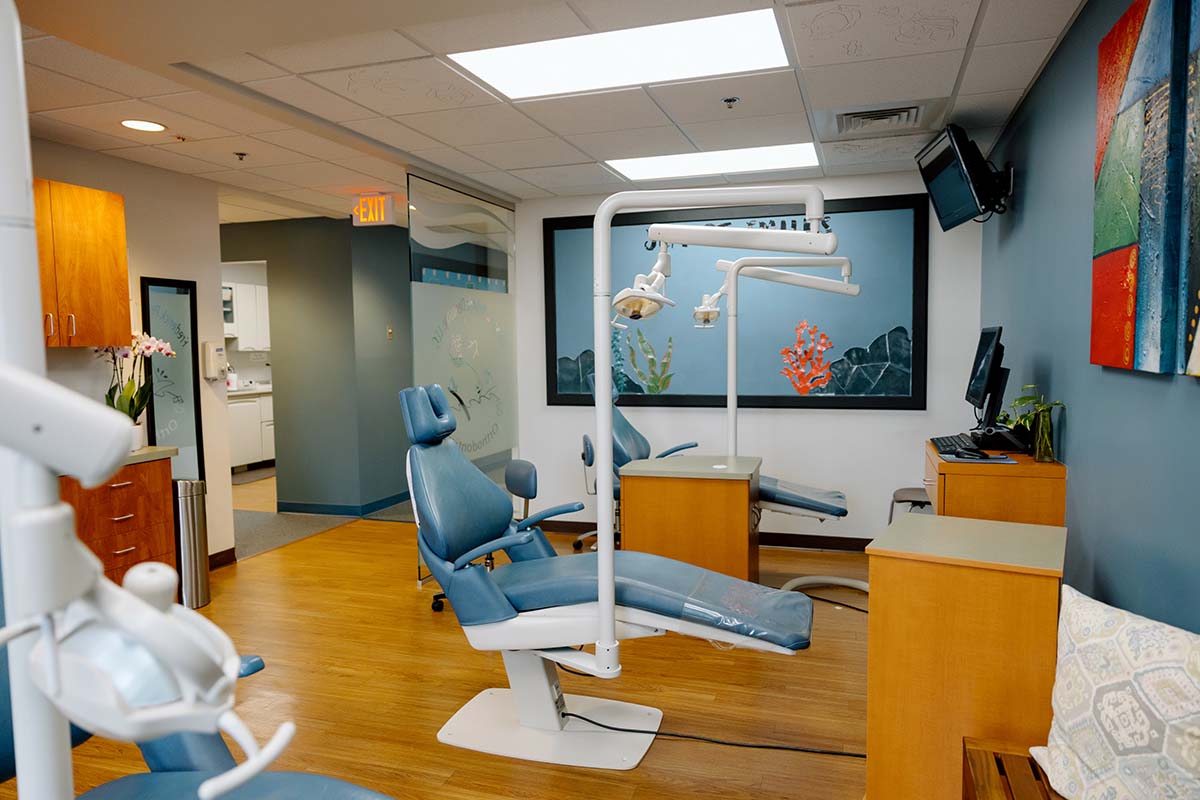


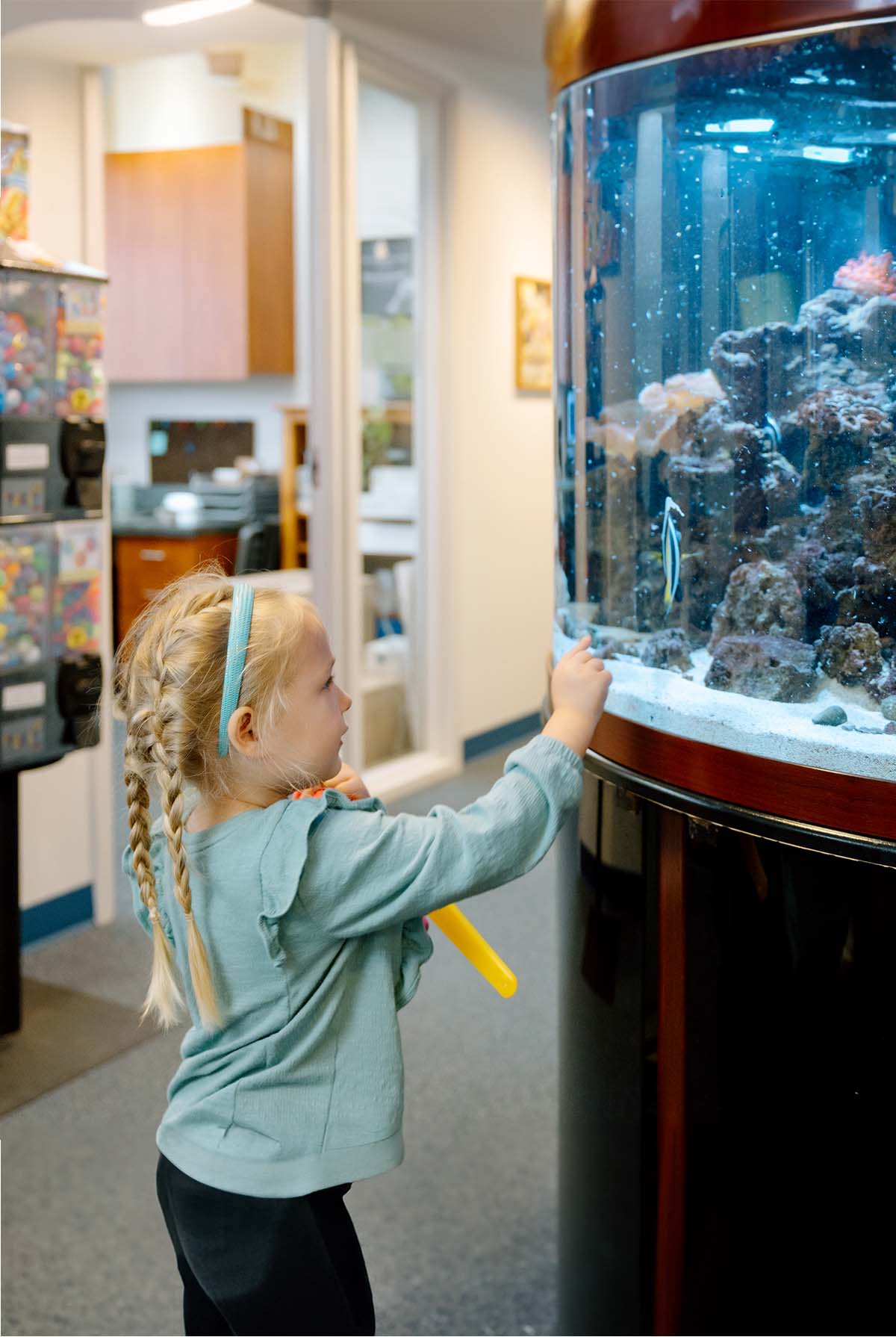



Easy First Visits
As pediatric dental specialists, we believe we are instrumental in developing a child's lifetime association with dentistry. That’s why we ensure their first visit is as easy as possible.
Your child will enjoy:
- A special get-to-know each other time to help them feel comfortable
- A simple exam only without any treatment
- A personalized plan created to fit their needs
Parents Welcome
Parents are always welcome to join their child throughout each visit.
Children With Special Abilities
We believe every child is a special gift, so we treat them with kindness in the way that best suits their needs. Our team specializes in helping children with emotional, developmental, and/or physical challenges.
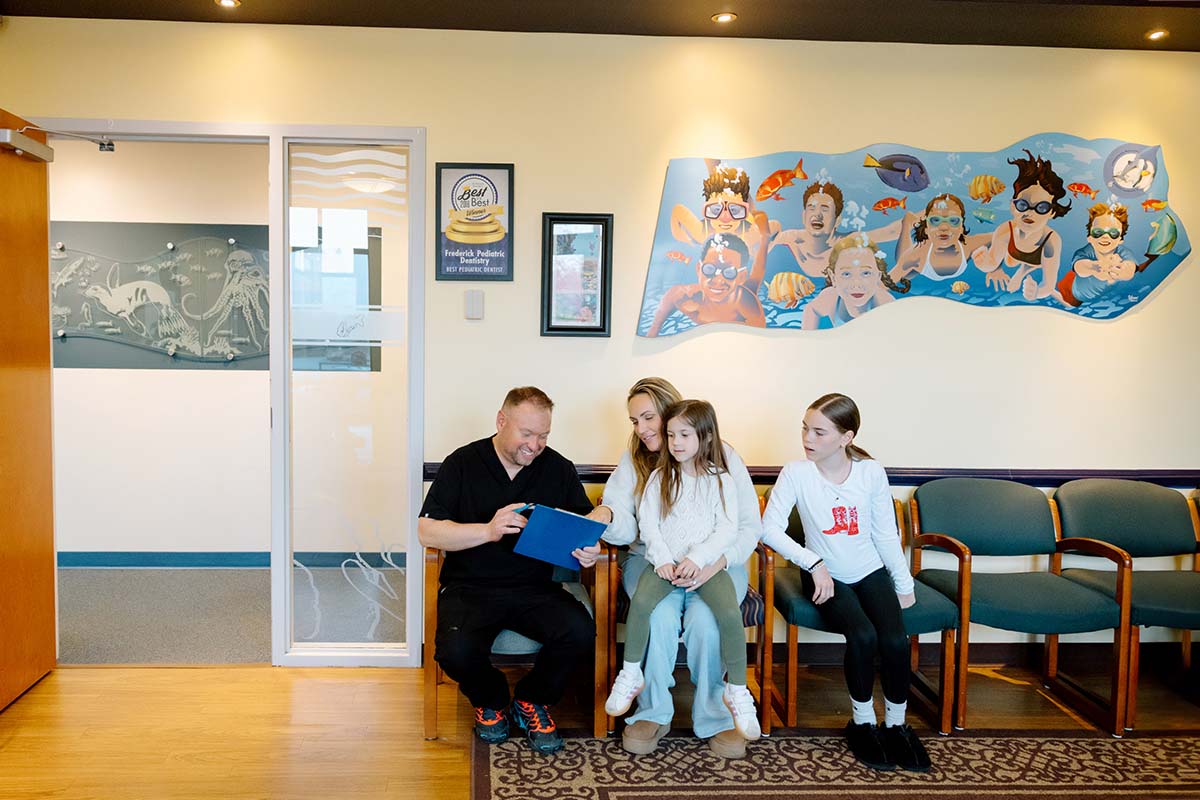


Before Your Visit
Please fill out the online forms below:

What to Bring
Please bring a few things along for your child’s first visit.
- Parent’s Photo ID (such as a valid driver’s license)
- Insurance card (for those with dental insurance)
- Questions or concerns about your child’s smile
Child medical history forms will be provided at the first appointment and must be signed by a parent or legal guardian prior to the child being seen.
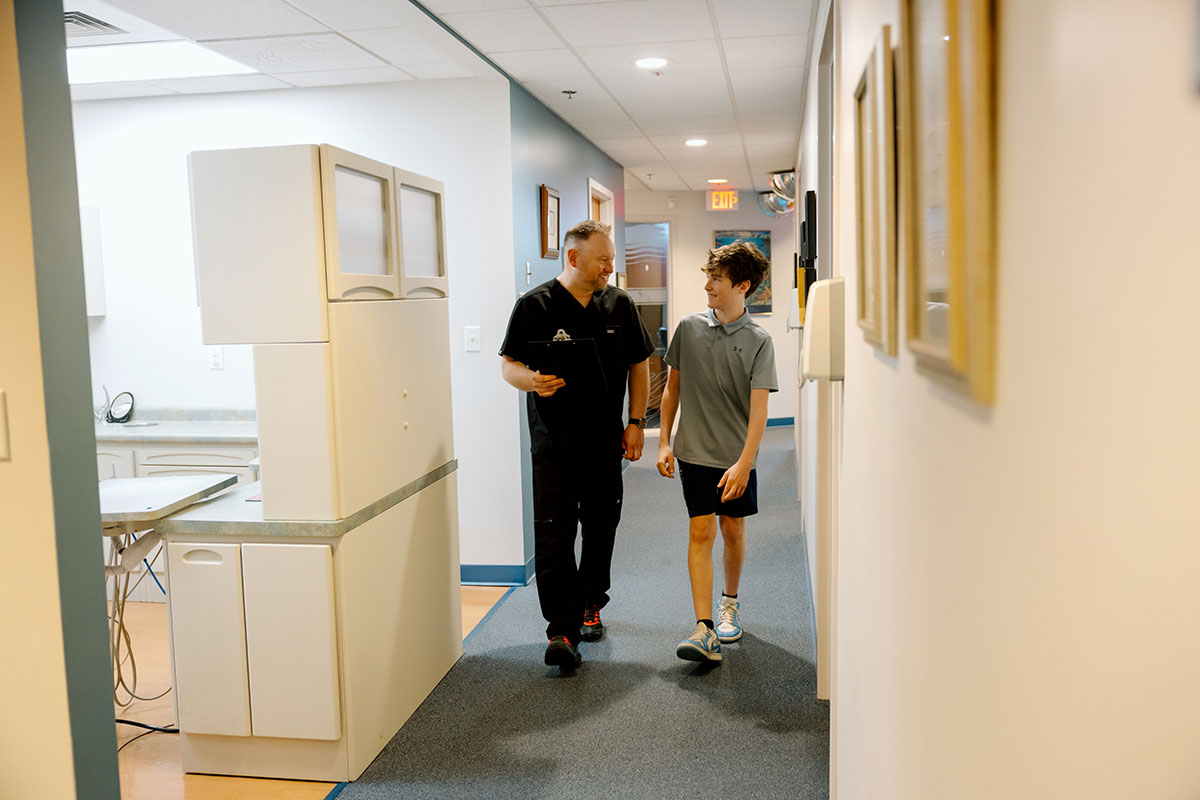






Finances and Insurance
Although we do not participate in HMO programs, we do accept some dental insurance plans. We also offer a wide variety of convenient payment options including financing through CareCredit.
“Kids absolutely love going here!”
Kids absolutely love going here! Friendly staff, great location. Wouldn’t take my kids anywhere else. Make sure to check out the aquarium!
Mark
We can’t wait
to meet you!
Request an appointment online to set up your first visit. We’ll be in touch soon.

